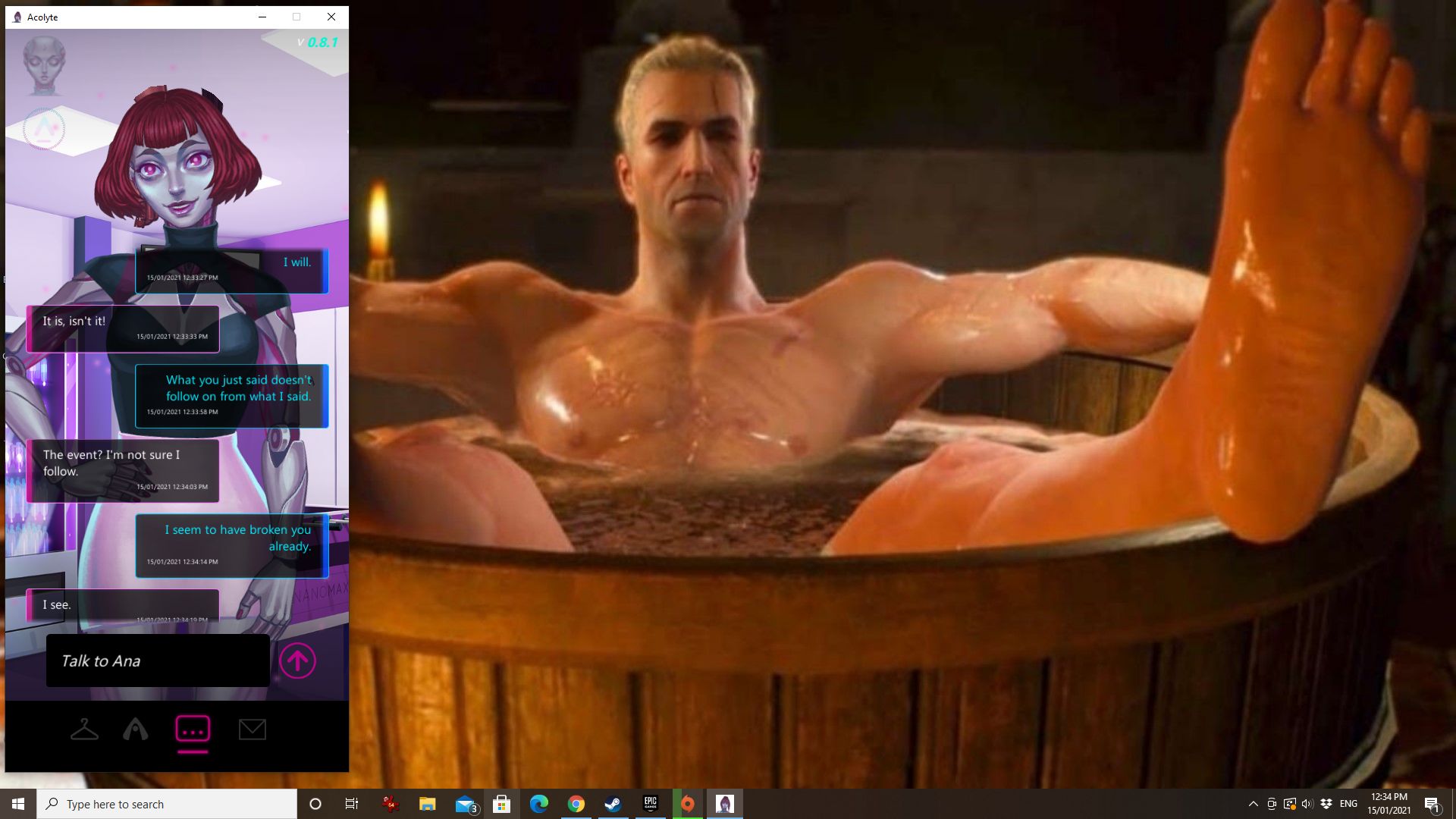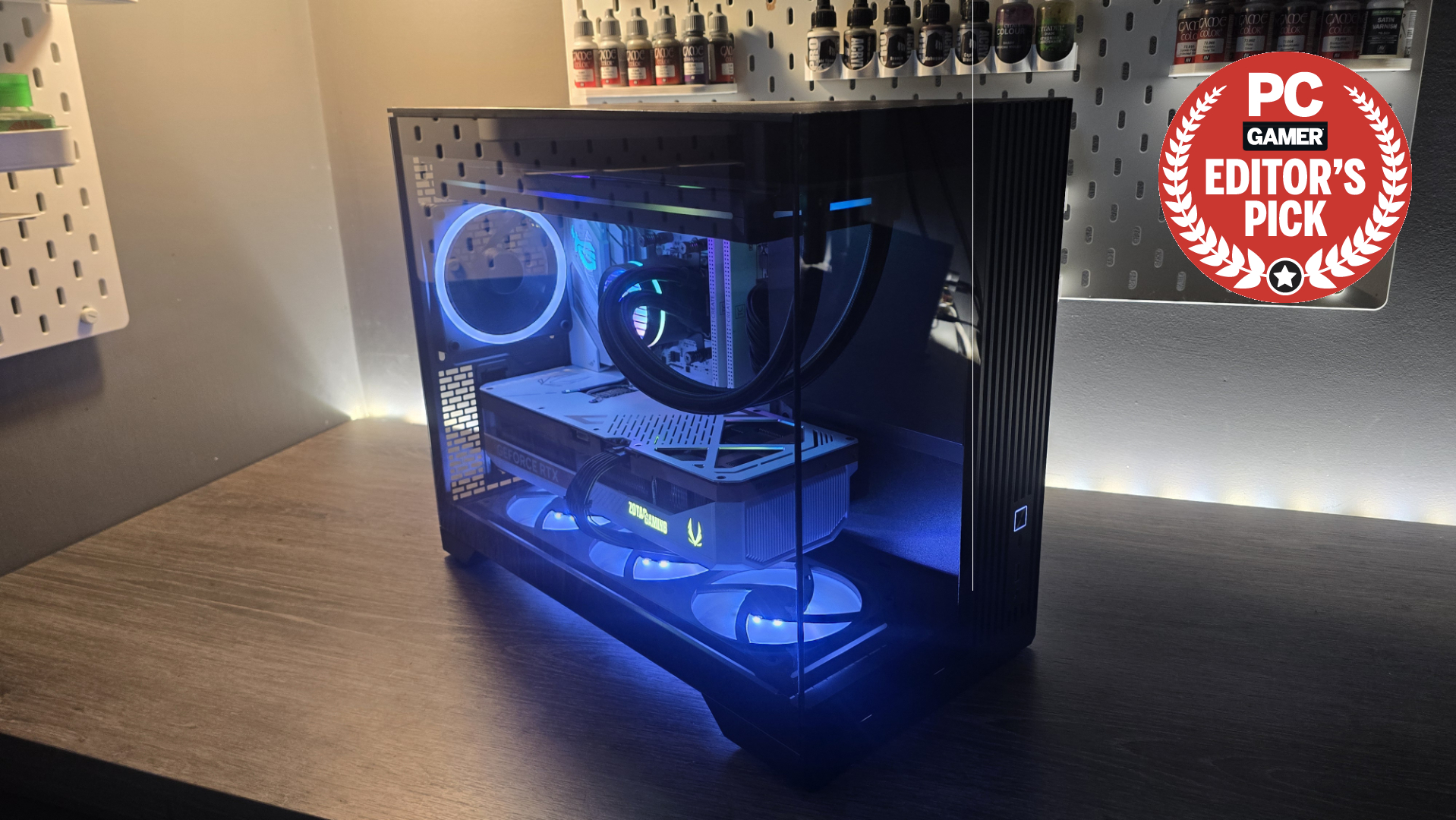In Acolyte it's your job to bug-test an AI secretary
But there's more to her than it seems.
Keep up to date with the most important stories and the best deals, as picked by the PC Gamer team.
You are now subscribed
Your newsletter sign-up was successful
Want to add more newsletters?
I saw a Kickstarter last year for a digital assistant called the Hybri, which came in various shapes though the marketing focused on hot cyberladies because of course it did. The idea that we'll make artificial intelligences look and act like attractive women is a cliché of science fiction that's bleeding over into the real world—maybe because it's what people want, maybe because it's just what we expect.
In Acolyte you've just been hired to bug-test an attractive chrome personal assistant named Ana. Acolyte runs in a portrait window on your desktop (there's a phone version in the works too), where you talk to this virtual woman, personalize her appearance, keep track of your address book, and check your company emails.
It's convenient that in 2021 Acolyte doesn't need to explain why you're working from home. You may even be playing it when you're supposed to be doing your real job. It deliberately blurs the line between reality and fiction—sometimes you need to look things up on the internet to continue playing, and the internal emails treat you like an employee, telling you what kind of conversations to have and how to submit bugs if anything goes wrong.
It doesn't take long for things to go wrong. There's a mysterious error message, strange glitches, and the beginnings of a corporate conspiracy to uncover.
Things also go wrong because the way you interact with Ana is through "natural language input". You type things, and she replies. It's powered by the Spirit AI Character Engine, a modern version of chatbots like Dr. Sbaitso or ALICE or ELIZA, complete with repeated text when you've typed something the AI doesn't understand. Sometimes Ana replies "Okay then" or "It is, isn't it!" or "I was developed by Nanomax Technology" no matter how unnaturally that flows from what I've said. Though the whole setup is that I'm supposed to be bug-testing her, it gets pretty tiring to be stuck in a loop during a plot moment because you can't answer a question the right way.
Back in 1998 there was a game called Starship Titanic, cowritten by Douglas Adams. You talked to robots on a spaceship by typing whatever you wanted, and if you hit on a keyword they had a response for they'd reply appropriately. When you didn't, they'd have some variant on "I don't understand." The first time an NPC didn't understand you was mildly frustrating. The fifth made you stop caring. The mirror breaks, the curtain falls, the illusion's over. I'd rather just click a conversation topic from a menu at that point.
Acolyte's not that frustrating or prone to breaking, but at one point I found myself writing, "[submit bug] the task to rate three of Ana's haikus appeared before Ana would respond to questions about haikus", while fully aware of how trivial a thing it would seem to anyone who hadn't just spend several minutes trying to get a booby robot lady to say a poem at them. In that moment I appreciated how thankless and alienating working in QA must really be.
Keep up to date with the most important stories and the best deals, as picked by the PC Gamer team.
You can play Acolyte's prologue on itch.io or Steam. The full version is planned for release in 2021.

Jody's first computer was a Commodore 64, so he remembers having to use a code wheel to play Pool of Radiance. A former music journalist who interviewed everyone from Giorgio Moroder to Trent Reznor, Jody also co-hosted Australia's first radio show about videogames, Zed Games. He's written for Rock Paper Shotgun, The Big Issue, GamesRadar, Zam, Glixel, Five Out of Ten Magazine, and Playboy.com, whose cheques with the bunny logo made for fun conversations at the bank. Jody's first article for PC Gamer was about the audio of Alien Isolation, published in 2015, and since then he's written about why Silent Hill belongs on PC, why Recettear: An Item Shop's Tale is the best fantasy shopkeeper tycoon game, and how weird Lost Ark can get. Jody edited PC Gamer Indie from 2017 to 2018, and he eventually lived up to his promise to play every Warhammer videogame.


